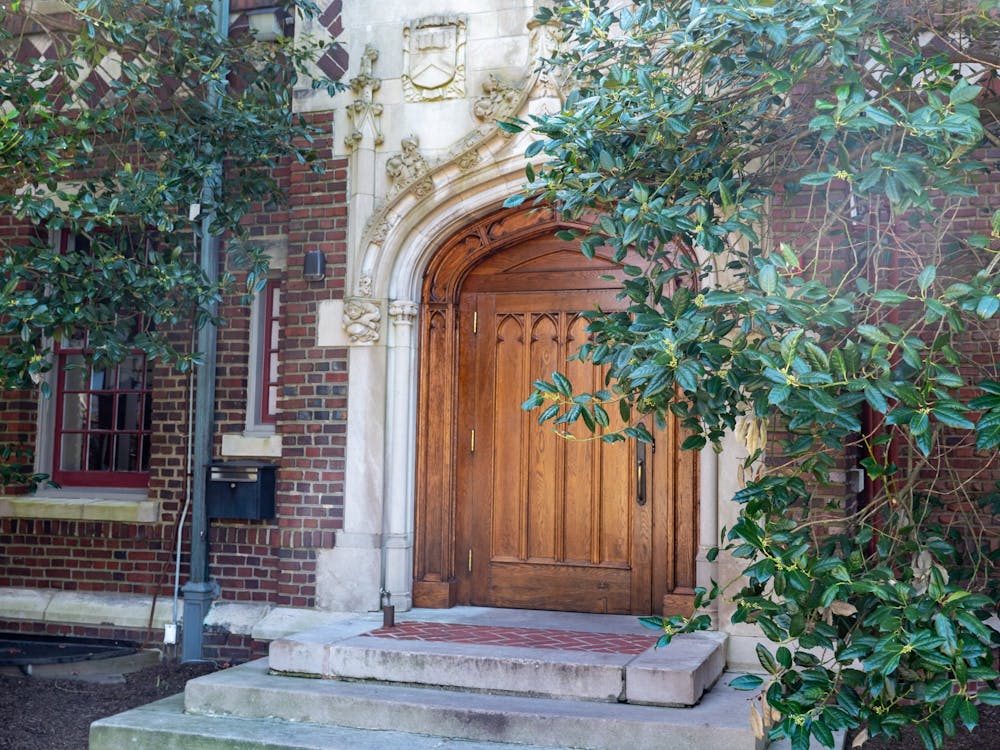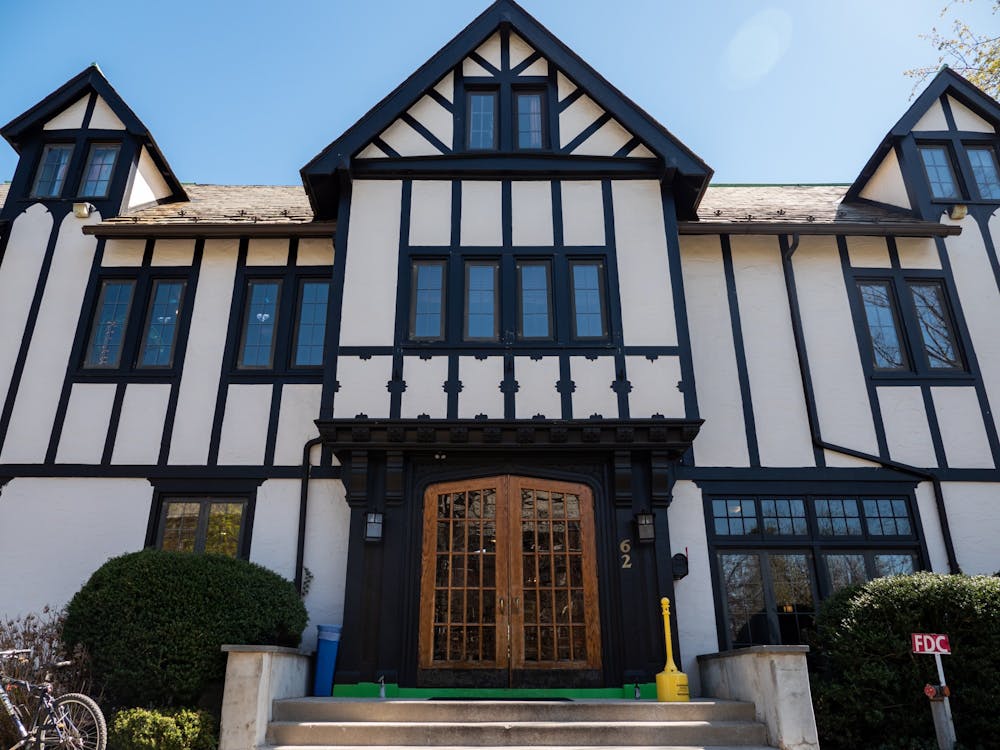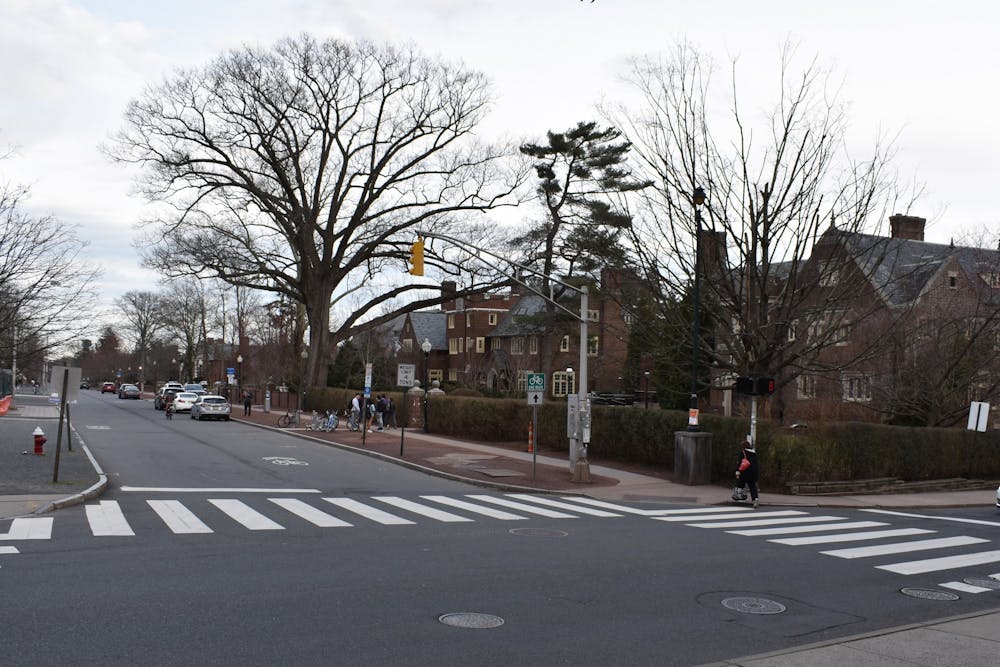This is the second installment of a two-part column on the eating clubs. The first part can be found here.
***
To make their spaces more “diverse, equitable, and inclusive,” some eating clubs recruit members to lead DEI work or host sessions facilitated by peer educators from the Carl A. Fields Center, the SHARE Office, or other resources provided by the University. During my time as the co-DEI chair of the Cap & Gown Club, I learned that while such programming is important, the reach of these initiatives is limited.
Racial abuse is neither ‘chill’ nor ‘diverse’
Given the realities of the virtual semesters, it took some time for me to develop an assessment of Cap’s culture. However, after a semester fully in-person with the club in the fall of 2021, I firmly believe that things are hard to change because of many members’ liberalism and unwillingness to question how they understand the world.
Microaggressions proliferated — incidents of bias that seem small and insignificant to the perpetrator(s) but inflict harm on the victim and communicate that they do not belong in such a space.
During my time in Cap, I witnessed racist jokes, such as ones that made light of confusing people of color for one another. Some members spent months trying to get the club to consistently play diverse playlists for parties. (A night-out playlist of all white artists with one Beyoncé song and one Rihanna song is not diverse.) Even after I was recruited as co-DEI chair, I felt nothing changed.
Whenever I tried to address incidents and shortcomings, especially in casual settings like meals, I felt that people regarded me as overly politically correct: people didn’t change their behavior and accused me of being no fun. That’s what happens when one or two people are tasked with shifting an entire institution’s culture. Many members didn’t see a problem with the culture and thus wouldn’t hold themselves or each other accountable.

I witnessed occasions where women in the club raised concerns about sexist behavior, and men rejected, denied, or dismissed these experiences. It’s hard enough to raise concerns about sexist, racist, and generally discomfiting behavior, but it becomes even more alienating when others go out of their way to deny your experiences.
From what I saw, this environment — supposedly known for being “chill and diverse” — did nothing to address harmful behavior on the part of individual members.
In particular, I witnessed the reproduction of anti-Blackness and misogynoir. For instance, in my sophomore year, I felt particularly vulnerable after witnessing degrading, anti-Black, and sexualized rumors perpetrated at Cap with seemingly no repercussions. As a sophomore and through the end of my time in Cap, I saw no real structures in place for members to address such interpersonal instances of racist rumors, gaslighting, and manipulation. I experienced no safeguards against abuse by members in contexts outside the purview of SHARE.
Having to coexist with people who had harmed me and others was draining and part of the reason why I dropped Cap. I spent my time in the club either forced to socialize with these people at dinner or putting a lot of energy into avoiding them.

In conversations with leadership, including one where I expressed my reservations about staying in the club, I raised some of these issues. It was hard to talk about how I repeatedly felt marginalized in the club, and how destructive the experiences had been. And it was hard to see nothing happen. I don’t think that was the fault of leadership. The problems were ultimately more structural.
The limits of DEI work at Cap and predominantly white institutions
Diversity, Equity, and Inclusion (DEI) work in a space rooted in white supremacy will inevitably fall short and — in combination with a large body of people who think they have nothing to learn — can prove nightmarish.
DEI work in this context is mostly about trying to get white people to care about racism, men to care about sexism, straight people to care about homophobia, cis people to care about transphobia, and so on. However, there’s neither the space nor time to fundamentally shift the way in which someone approaches the world. DEI work is important, but it’s also a band-aid for a terminal illness; a PowerPoint to learn topics and concepts that demand sustained, conscious, and critical engagement.
This type of DEI work also does not focus on providing resources to build community within and across marginalized groups. Cap is one of the clubs with well-established affinity groups (some clubs don’t have them at all). While I was a member, the club still made those groups pay for events out of pocket — on top of an already burdensome $4,500+ charge per semester.

The entrance to Cap & Gown Club.
Candace Do / The Daily Princetonian
Cap will never be a safe haven
To reiterate, I don’t regret being in Cap. I met some great people and made close friends. It was hard to leave the club because of the familiarity I had developed with them in that context. Furthermore, I don’t blame them — or anyone else — for staying in the club and finding community there. The affinity groups, while lacking financial support from the institution, provide a valuable community space for many people. I also don’t blame the club’s undergraduate leadership for the problems I experienced.
But both Cap’s culture and structure mean that it will never be “chill” (a completely relaxing, comfortable environment for people of all backgrounds at all times) or “diverse” (Bicker and the larger student pool ensure that it will always be predominantly white). And solely increasing representation of marginalized people can’t make the club a better place — people from marginalized backgrounds can still perpetuate harmful club culture.
I certainly wish I could have done more as co-DEI chair. However, I don’t think I could have. Had I known more about what I was getting into, I don’t think I would’ve applied. I signed up to help people navigate the world in more thoughtful and sensitive ways. I was confronted with an environment in which many people were unwilling to question their ways at all.
It’s also hard to change what you don’t fully understand. I don’t understand the power that the club manager wields. I don’t understand how funding works. I don’t understand what a grad board is; I don’t know what they do. I don’t understand what Cap — or any eating club — is as a legal and financial entity.
Ultimately, eating clubs are exceedingly opaque. Their complete and utter lack of transparency makes it impossible for any undergraduate to meaningfully change these institutions: power is concentrated away from undergraduates who are not given the tools, context, or opportunities to effectively interact with those in power.
All I could do was try to affect my peers’ attitudes and actions within the club, not address or challenge any structural aspects of the club. The problem was that, as previously mentioned, many members’ attitudes are affected by the context of the club. This context tells them that they’re part of the unmatched “illustrious” (per Cap’s motto): they’re ‘special,’ they’re qualified to lord over other students’ social lives via Bicker, and they’re the pinnacle of virtue on the Street.
That same attitude encourages Cap members to think that only the members of the clubs they perceive as politically conservative and wealthy need DEI training. They, on the other hand, have nothing left to learn and are exempt from introspection.
Come to ‘Mother’: Terrace’s appropriation of Amharic
After I dropped Cap, I thought — rather naïvely — that I could join Terrace. I had friends in the club who enjoyed it, it seemed to be less plagued by cliqueness than Cap, it had good vegetarian options, and it labeled nut products accurately and consistently. (Cap neither had consistent vegetarian options nor labeled allergens during my time there; so yes, this was a scarily low bar, but I didn’t realize that at the time.) I went to a few Street Week events at Terrace and enjoyed them.
Then Terrace sent out an email on Jan. 28 to all six res college listservs appropriating Amharic — a major language of Ethiopia that is part of the Semitic family — to suggest demonic text. The Princeton Ethiopian and Eritrean Students Association (PEESA) sent out a statement shortly after responding to the email and the rising appropriation of Amharic across social platforms, concluding by stating, “We hope you can take some time to reflect on the ignorance that has led to this incident on our campus and on social media.”
The internal apology sent to Terrace members a few hours later — which a current member shared with me — revealed persistent ignorance by promising a donation to the Anti-Defamation League. As #DropTheADL’s open letter to progressives explains, the ADL has “a history and ongoing pattern of attacking social justice movements led by communities of color, queer people, immigrants, Muslims, Arabs, and other marginalized groups, while aligning itself with police, right-wing leaders, and perpetrators of state violence” under the guise of fighting hate speech. Clearly, the ADL is not an organization that should align with Terrace members’ supposedly “progressive” values: there are many organizations that fight antisemitism and advocate for collective liberation that the club could have donated to instead.
I also learned that much of the membership has an incredibly performative attitude about diversity. If you walk to the club right now, you will see the progress pride flag and a purple peace flag over the door. Pride flags and peace flags appear in membership photos throughout the years; also consistent is the striking lack of people of color, which I have felt while dining in the space as a guest.
Terrace markets itself as one of the most progressive and inclusive spaces on the Street. The Amharic email revealed that this was just empty air. From my perspective, it seems like few think to ask, “Why, if Terrace is so inclusive, are so few people of color willing to enter the space?”

The entrance to Terrace F. Club.
Candace Do / The Daily Princetonian
Final reflections
Friends who have been members of Terrace have told me that nothing about the way the club is run is radical or progressive. Ultimately, all the eating clubs are holdovers from the days of propertied, rich white men creating playgrounds and new ways to signal status for themselves.
All the Bicker clubs give the ability to signal prestige as you allegedly have to be “interesting” enough to gain acceptance. In reality, you just have to be well-networked. Or have really wealthy parents.
Overall, every club relies on recreating exclusionary dynamics.
I’m not trying to make eating club members feel bad about themselves. If that’s what this piece did for you (assuming you made it this far), I want you to ask yourself why.
If you think I should’ve been ‘nicer,’ you should read “The Uses of Anger” by Audre Lorde. To paraphrase, is it my way of writing that keeps you from heeding me, or “the threat of a message that [your] life may change?"
I’ve met many people (in Cap and beyond) who have chosen to interpret being called out on racism and/or discrimination as me “bullying” them. They made the choice to get defensive and view the situation in that way to prioritize their own self-image.
I think it’s a cowardly choice — notably a choice — to continue inflicting harm on those you claim to be in community with, but I can’t change anyone’s mind for them. And I highly doubt that being more obsequious about it would accomplish anything other than my own debasement.
Princeton is an institution that insists it has largely transcended its racist history through hollow political gestures and lip service. The eating clubs come from that same history: they reflect racialized class stratifications, racialized admissions processes, and the fact that our economic system creates and thrives off of racial inequality.
Given that we’re not going to burn down the eating clubs tomorrow, we need to commit to facing and eradicating the discriminatory practices that exist within them, such as Bicker. Those who are members are best situated to do so.
No other college has eating clubs: in the longer-term, there are numerous alternatives. Princeton could, as the vast majority of universities do, provide apartment-style housing. It could expand meal plans to include off-campus restaurants. Or it could support expanded independent options, particularly ones with a meaningful focus on community.
However, this seems unlikely. The current University administration seems to have signaled that they either remain indifferent to or even embrace the eating clubs. Indicators include the fact that the only apartment-style housing on campus is in Spelman Hall and Forbes College’s appropriation of the Pink House vegetarian co-op.
This circles back to my stint as co-DEI chair: I can’t provide a magic solution to the problems that the eating club system represents. However, there is a path forward. The burden of creating more equitable spaces shouldn’t be placed on the most marginalized while those who have benefitted from racist heteropatriarchal systems roll their eyes and chat amongst themselves.
Listen. Let go of moral superiority. Confront the biases within your ways of approaching the world. Before you say that an incident “wasn’t that serious” or that an individual is being “too sensitive,” consider that you move through the world differently than them. Without having experienced the same marginalization and discrimination, you can’t assess the validity of their experiences. Learning how to stand in meaningful solidarity with others isn’t easy work, and it’s not going to happen overnight. I’m still working on it too.
We can all ask questions. We can all speak against the harms we witness. We can imagine communities that don’t rely on exclusionary practices derived from racist histories, and we can invite others to imagine with us. We can build better spaces that anyone can enter and feel a part of. But not if we keep excusing, upholding, and reproducing racist, exclusionary spaces rooted in white supremacy.
Brittani Telfair is a senior from Richmond, Va. majoring in SPIA and pursuing a certificate in African American Studies. She is the former DEI co-chair of the Cap & Gown Club for the 2021–22 school year. She dropped the club in late December of 2021. You can reach her at btelfair@princeton.edu or @brittanit10 on Twitter.








